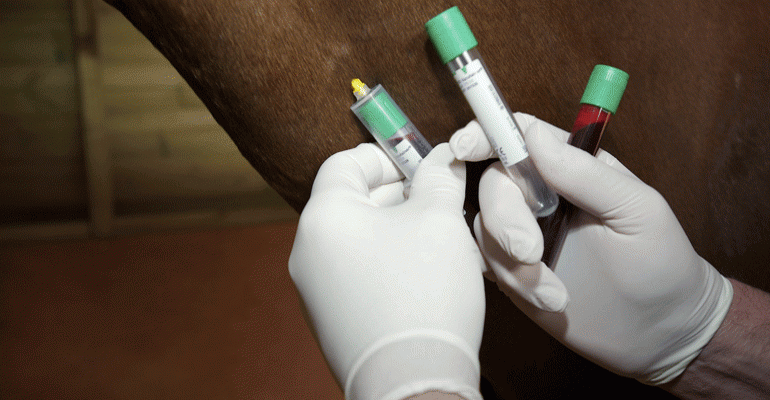The world is going on a lock-down because of the Corona Virus, also the equine community is affected. In February the Longines Masters of Hong Kong were cancelled. More recently major shows such as the Dutch Masters have announced to take measures, as well as the Saut Hermès was cancelled. Al measures to limit contagious situations. But what about the horses? Can Corona affect the horses?
Coronaviruses are a group of viruses that can cause a range of symptoms, including a runny nose, cough, sore throat and fever. Some are mild, such as the common cold, while others are more likely to lead to pneumonia. They're usually spread through direct contact with an infected person. The coronavirus gets its name from the crown-like spikes on its surface (“corona” in Latin translates to “crown”). The genus coronavirus is composed of at least three groups that cause mild to severe enteric, respiratory, or systemic disease. Other well-known coronaviruses are SARS and MERS.
Coronaviruses are common in several species of domestic and wild animals, including cattle, horses, dogs, cats, ferrets, camels, bats, and others. Although not common, coronaviruses can be transmitted from animals to humans. Bats can be reservoir hosts for viruses which can cross species barriers to infect humans and other domestic and wild mammals.
The 2019 Novel Coronavirus (2019-nCOV), now known officially as COVID-19 or Corona Virus Disease, is thought to have originated in bats and transmitted to humans through an intermediate animal host. Investigations are still ongoing.
Is my pet at risk from the COVID-19 coronavirus, or will my pet infect me?
The CDC says that, at present, there is no evidence to suggest that horses will become a source of infection of COVID-19 in other animals or humans. In late February, Hong Kong authorities quarantined a dog after samples from the dog's nasal cavity and mouth tested "weak positive" for the virus. The dog’s owner had tested positive for COVID-19. Currently, the dog has tested positive multiple times, but is not showing signs of illness. Authorities believe it is a case of human to animal transmission but stress that it is not cause for alarm.
It's important to remember that viruses can sometimes infect a species but not cause illness in that species, nor become transmissible to others. Again, it is not believed that pets such as horses can pass COVID-19 to humans.
If you have COVID-19, you should restrict your contact with pets and other animals, just like you would with other people. When possible, have another member of your household care for your animals while you are sick. Avoid direct contact with pets, including petting, snuggling, being kissed or licked, and sharing food. If you must care for your pet or be around animals while you are sick, wash your hands before and after you interact with pets and wear a facemask as directed by your physician.
Practical measures to protect yourself and your family from this or any other contagious respiratory illness include:
Wash your hands often with soap and water. If soap and water are not available, use an alcohol-based hand sanitizer with at least 60% alcohol.
Watch a video about the WHO's recommended handwashing technique.
Avoid touching your eyes, nose, and mouth with unwashed hands.
Avoid close contact with people who are sick.
Stay home when you are sick or have a fever.
Cover your cough or sneeze with a tissue, then throw the tissue in the trash.
Clean and disinfect frequently touched objects and surfaces.
Maintain more personal space between you and other people than you might usually.
Vaccinate your pets as recommended by your veterinarian.
If you become ill with the COVID-19 coronavirus, please wear a well-fitted mask to help prevent the spread of the virus and limit contacts with other
humans and your pets as recommended by your physician.





